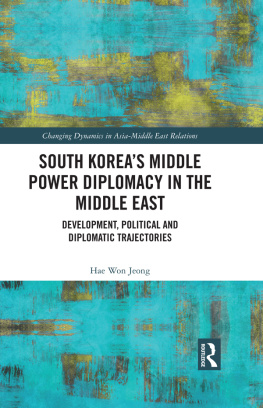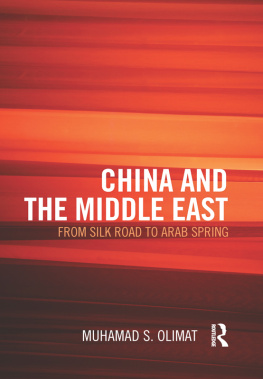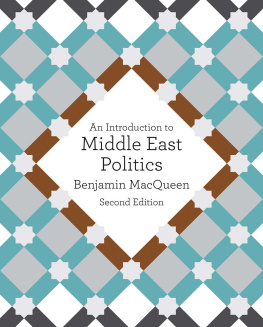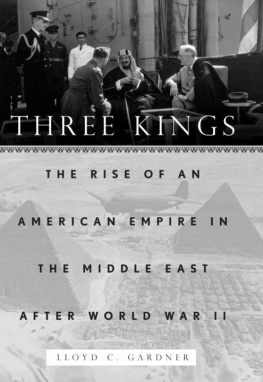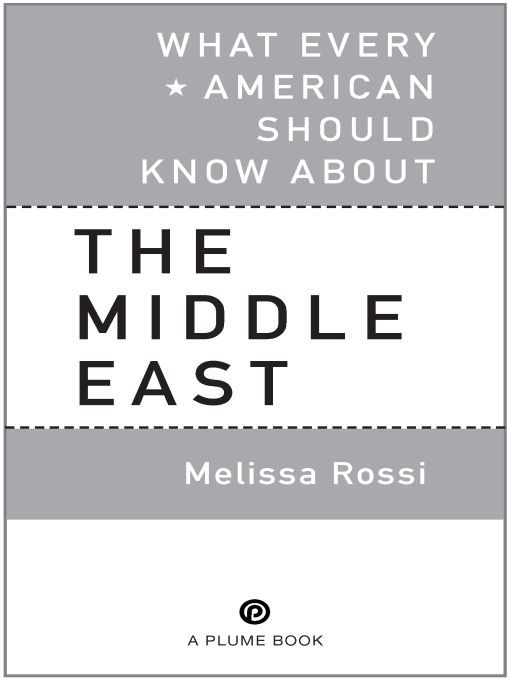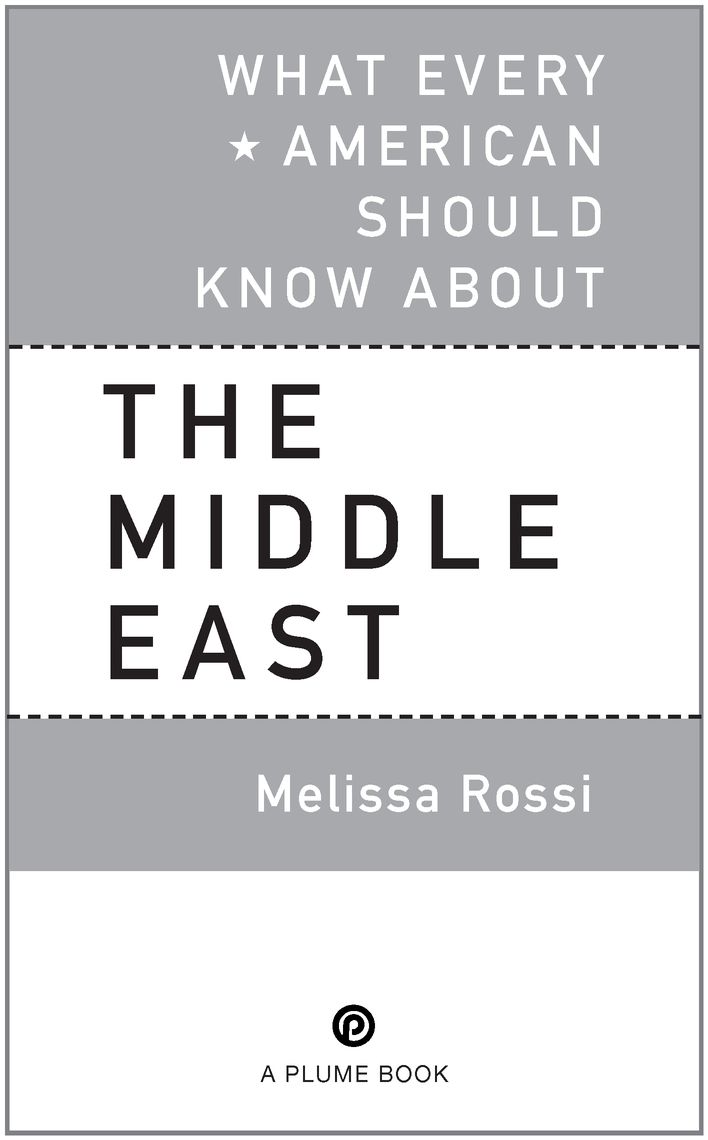Table of Contents
A PLUME BOOK
WHAT EVERY AMERICAN SHOULD KNOW ABOUT THE MIDDLE EAST
MELISSA ROSSI is an award-winning journalist who has written articles for Newsweek, National Geographic Traveler, Newsday, Esquire, George, MSNBC, and the New York Observer. She has written extensively about Europe, Asia, and the Middle East and has lived abroad for many years.
ALSO BY MELISSA ROSSI
What Every American Should Know
About the Rest of the World
What Every American Should Know
About Whos Really Running the World
What Every American Should Know
About Europe
What Every American Should Know
About Whos Really Running America
To the future tourism minister of Egypt,
Mohammed Yehia Zakaria, and
to the angel next door, Lorenzo DellAiuto
Acknowledgments
This was the most difficult book Ive ever written, and the most surprising: not only was the Middle East delightful in the months I traveled across it, but unexpected help came from all corners. A number of fabulous photographers in particular aided the cause immensely not only by sharing their gorgeous images, but by sharing their insights. I am forever indebted to Matthew Thistle, Fabien Dany, Eric Lafforgue, Andrew McLoughlin, Ahmad Al-Roomi, Hussain al Baluchi, Simon Chauvin, the Otrakji family, Jeremy and Bridget Palmer, the assorted photographers whose works are posted on Mideastimage.com, Muhammad Mahdi Karim, and Saudi Aramco, which donated amazing photos that had been shot for Saudi Aramco World. American ambassadors, including ambassadors Charles Stuart Kennedy and Andrew Killgore, were a wealth of information. I felt like I had spent a great deal of time with them and a host of other diplomats formerly posted in the Middle East after reading the interviews conducted by Charles Stuart Kennedy and Dayton Mak for the Association for Diplomatic Studies and Training. These oral histories are now posted on the Library of Congress site and they are gems. Journalists, authors, and other Middle East observers also provided invaluable information. Jean Sasson, author of Princess, not only provided great insight into Saudi Arabia, where shed previously lived, she even called her contacts around the country to update me on the latest. Oliver Hargreave, Youssef Ibrahim, and Andrew Burke were fonts of insight. I was fortunate enough to meet journalist Pat Lancaster and democracy promoter Steve Pier when I was a monitor for elections in Omanboth were incredibly knowledgeable about Middle Eastern affairs, and I was honored that Abdalla Bashir of the Oman embassy arranged the trip. I could spend months hanging out talking about the Middle East with Yanal Abaza, and Im still wowed by the kindness shown to me around every bend, particularly that of Mohammed Yehia Zakariawho traveled across Egypt to get a camera to my photographer. As usual, my amazing editor, Emily Haynes, was my savior on numerous occasions, as was Nadia Kashper, and copy editor Ted Gachot was a true godsend. Plumes brightly guiding light, Cherise Fisher, and production editor Lavina Lee and production queen Norina Frabotta were also lifesavers. Utmost thanks, too, to sharp-eyed intern Heidi Blauvelt. Oliver Benjamin and Dave Nicolai were oh-so-helpful in the graphics department. My agent, Bill Gladstone, my family, Katherine Dunn, Gayle Newhouse, and Muriel Hastings got to hear more than their fair share of my rantings and ravings, and Im amazed they didnt hang up the phone. And Steve Warner got me out of my darkest funks. The Egyptian Tourism Authority, the Jordanian Tourism Board, and Dubais DTCMs Virginia Goff were extremely helpful, as were a number of hotels who ensured we had an incredible view into local happenings. Four Seasons Cairo and Four Seasons Damascus, Banyan Tree al-Areen in Bahrain, Qatars Sharq Village, Park Hyatt Dubai, One&Only Royal Mirage, Fairmont Dubai, Ritz-Carlton in Doha and Sharm el-Sheikh, Syrias Beit al Mamlouka, Al Moudira in Luxor, and Movenpicks Royal Lotus Nile cruise liner were just a few places we stayed that knocked our socks off with their hospitality. Special thanks to Bryan Kresie, Dalia Nadim, Randy Shimabuku, Naram Omran, Leila Arbouz, Rhoda Adams, Katherine Kaczynska, Peter Collins, and Lauren Finocchiaro for all their help. To all, and so many more, I am deeply grateful.
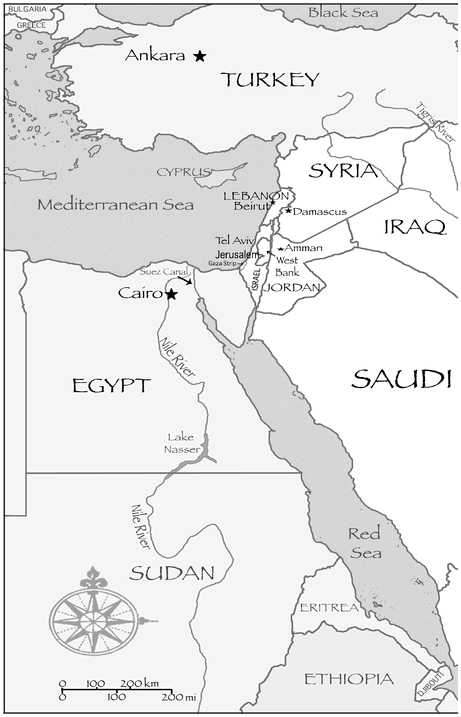
Despite all the attention given to the Middle East, nobody is quite sure exactly which countries it includes. For our purposes, the Middle East covers the land from Egypt to Iran, from Yemen to Syria. Whats not obvious on maps is that there are actually two Middle Easts: the eastern half is rich in oil and
mostly ruled by monarchs. The western half is oil poor and obsessed with Israel, by far the richest, and, lately, the most aggressive country in the neighborhood.
Introduction
Last year, when I told American friends about my upcoming travels across the Middle East, the response was nearly universal: Oh no. I was cautioned, warned, urged to take out more life insurance. Nobody mentioned, as they usually do, that they were jealous; not one person asked to come along, although a few asked if I would be wearing a burka.
But they clearly didnt understand the Middle East. They didnt understand that this land brimming with history and ancient architecture is also thick with culture and over-the-top luxury. They didnt know what Id already learned on a previous visit: the Middle East, beyond being exotic and gorgeous, is always intellectually stimulating and often downright fun. It is utterly fascinating, from the call of the muezzin from slender minarets five times a daya call I came to adoreto the souks where one can find everything from soft shawls to nuggets of frankincense. They didnt know about Arab hospitality. They didnt know about geological wonders like the wadis, dried up riverbeds among mountains, or the thrill of camping with bedouins in the desert. They didnt know about dining in Syrian courtyards or sailing on wooden dhows off Oman, where forts are chiseled into the cliffs. They didnt know the calm of cruising the Nile or the hopping nightlife of Dubai. They didnt know the sheer luxury of the hotels across the Gulf: the stunning sleepery designed like an old pearling village in Qatar, the double villas with a swimming pool canopy in Bahrain, the Cairo hotels filled with such priceless finery they felt like museums. They didnt know about the food, although they must have guessed after I left skinny and returned smiling and roly-poly.
Thats one of the themes of this book: the Middle East isnt necessarily what were told it is. It isnt a land of 132 million Osama bin Ladens; its not traversed by camel much these days; and car bombs arent blowing up around every bend. There are indeed a few parts you couldnt pay me to step into at the momentIraq being one, and the Gaza Strip another. In fact, during interviews about those places and while reading reports about them I often found myself cryinga lot. There were other places where I couldnt get in, such as Iran and Saudi Arabia. But every stop on the four-month tour was eye-opening, and the people I met were full of kindness and hospitality. I didnt have one frightening, or even dodgy, moment, although I left part of my stomach in the desert of the UAE after a dune ride the mere thought of which still makes me dizzy.


